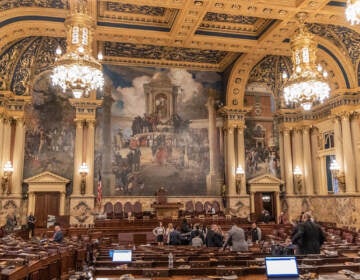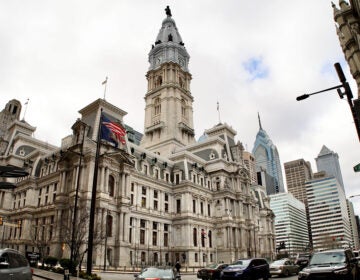Students, teachers march for racial equity reform in Philly schools
Demands include school-based racial and bias training, funding of restorative justice and trauma response practices, and equitable hiring practices.
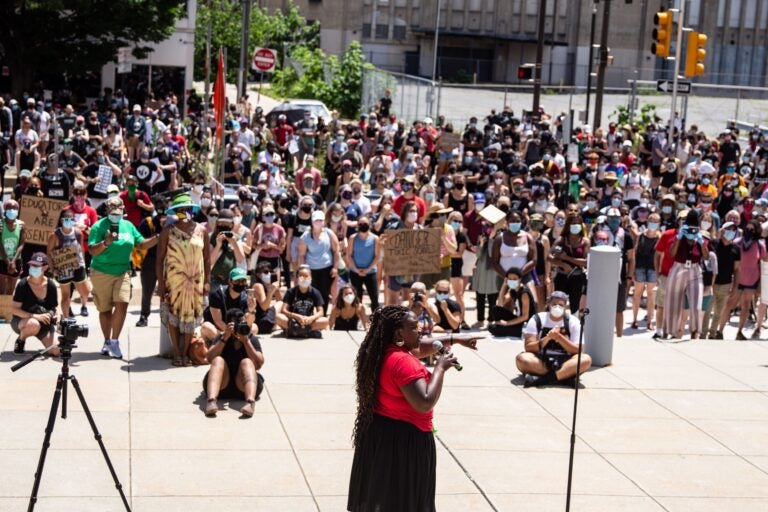
Councilmember Kendra Brooks speaks to supporters about more equitable Philly schools at district headquarters Sunday. (Kimberly Paynter/WHYY)
Updated: 6:35 p.m.
___
In recognition of protests over the police killings of Black Americans like George Floyd and Breonna Taylor — as well as the deep health and economic disparities the coronavirus pandemic has unleashed on communities of color — Philly area students and teachers took to the streets Sunday for an Educators and Students for Black Lives March.
Led by Black education organizations such as the Racial Justice Organizing Committee (RJOC) and the Melanated Educators Collective (MEC), in addition to Black Lives Matter Philly and a host of other groups, the march made its way from City Hall to the School District of Philadelphia’s offices on North Broad Street. Marchers are demanding that the district make immediate structural changes to address issues of racial equity within schools.
Clarice Brazas of RJOC, a public school teacher from West Philadelphia who was one of the march organizers, said the pandemic was a major catalyst.
“Before we were doing this, [we] started organizing Groceries for Philly, which is a place where we’re going into the communities that really have food deserts and making sure that they are able to access fresh food,” Brazas said in an interview before the march.
“Not being able to be in school because of COVID-19 has really highlighted the ways that we rely on our students and they rely on us.”
“Currently, our schools do not function as places of freedom and safety for Black and brown students,” Brazas said. “These demands are a starting place for making schools in Philadelphia more racially just.”
RJOC core member Keziah Ridgeway, a humanities teacher at Northeast High School, said recent online accounts of racism in schools from Black students across Philadelphia and its suburbs — such as the Black Mainline Speaks Instagram account and Black at Masterman — are uniting Black educators right now. (Masterman students planned a demonstration in conjunction with the larger march Sunday.)
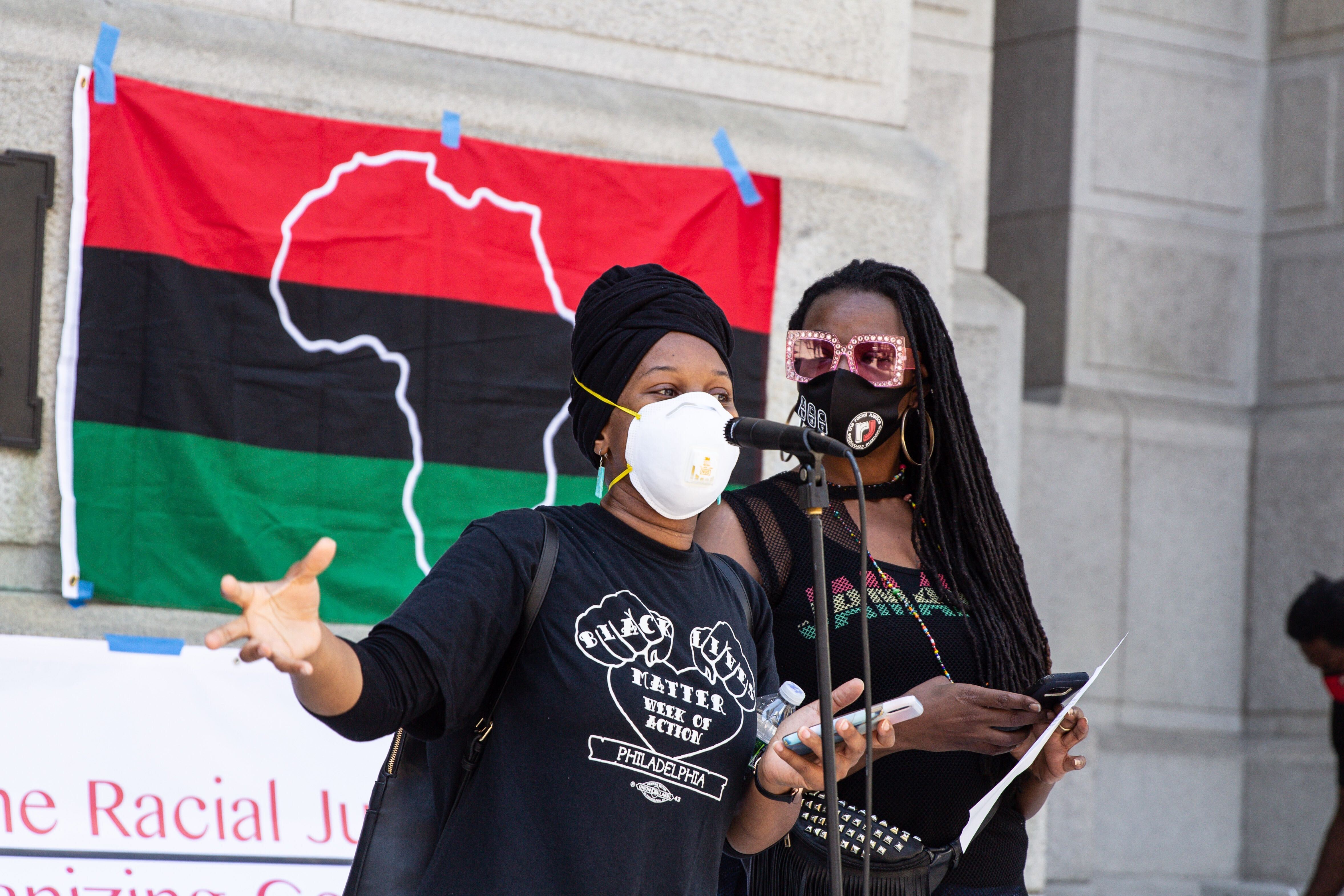
“Hearing those stories, I think all of us that were Black or teachers of color … we were angry. We just knew that it was time to make our voices heard,” Ridgeway told WHYY. “Teachers make their voices heard in classrooms, and now we’re gonna bring it to the streets.”
Alternating chants of “no good cops in a racist system” and “Black Lives Matter”. Crowd is now upwards of 200 people. pic.twitter.com/e5Rl3nPniH
— Sojourner Ahébée (@SojournerAhebee) July 12, 2020
MEC and RJOC recently issued a list of 10 demands for the school district that calls for school-based racial and bias training, funding of restorative justice and trauma response practices in schools, and equitable hiring practices of Black teachers, among other reforms. More than 200 individuals and organizations have signed on to a statement of support for the 10 demands.
Philadelphia Home and School Council President Shakeda Gaines, Central High School student Mariame Sisoke and City Councilmember Kendra Brooks were among those who spoke to the crowd of several hundred people.
“We have to fight for restorative justice in our schools in place of police,” Brooks said, speaking to the push to remove police officers from security positions inside schools.
Data shows that schools with police are more likely to refer children to law enforcement, including for non-serious violent behaviors. In 43 states and the District of Columbia, Black students are more likely to be arrested than other students while at school, according to an analysis by the Education Week Research Center.
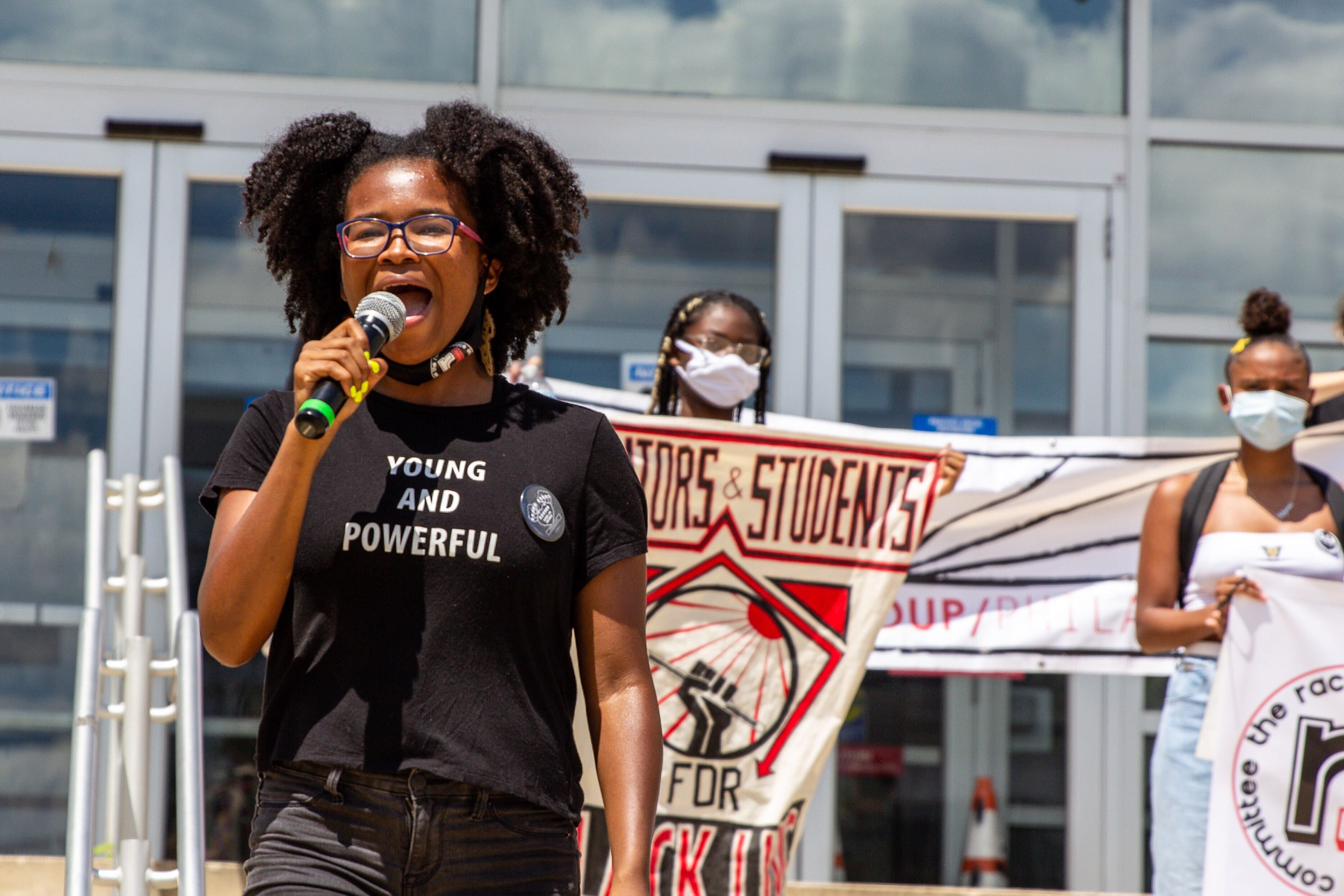
Students joined teachers in voicing their concerns over racial equity. Youma Diabira, a student at Central High School, spoke to the need for culturally responsive curriculums in Philly schools.
“Expand the curriculum,” Diabira said. “Black students deserve to read black books by Black authors.”
Central High student Sheyla Street spoke about the critical need in the Philadelphia School District for an official process for reporting violations relating to race and discrimination.
“How can Black teachers be there for Black students if they can’t speak up about racial injustices in their schools?” Street asked. “We demand for a process that protects students and staff that report violations of racism and discrimination.”
Of the march organizers’ demand that the school district institute antiracist training for all Philadelphia teachers and school staff, Central student Mariame Sisoke said, “This training must be ongoing and a regular process of professional and personal development.”
Andrea and Amy Pittman are middle school public teachers in Philly. They are here today for the disproportionate amount of Black students in special-ed. “We need policy makers and educators to acknowledge that race matters”. pic.twitter.com/9vSG6AoKOg
— Sojourner Ahébée (@SojournerAhebee) July 12, 2020
Andrea Caison and Amy Pittman, both public middle school teachers in Philadelphia, said they joined the march to advocate for the disproportionate number of Black students in special education.
“We need policymakers and educators to acknowledge that race matters,” Pittman said.
Caison added, “I believe that if we are really going to teach children the harms of racism, then we need to teach how to be anti-racist and it needs to start in the classroom, and the history books, and the literacy … all of that needs to be inclusive. Children need to see people who look like them and understand the contributions that people who look like them made to our history, instead of erasing it in our history books.”
Senator Sharif Street says for many, the demands being asked for today are nothing new. “for many this is a multi-generational struggle.” pic.twitter.com/noVR614IJd
— Sojourner Ahébée (@SojournerAhebee) July 12, 2020

Get daily updates from WHYY News!
WHYY is your source for fact-based, in-depth journalism and information. As a nonprofit organization, we rely on financial support from readers like you. Please give today.


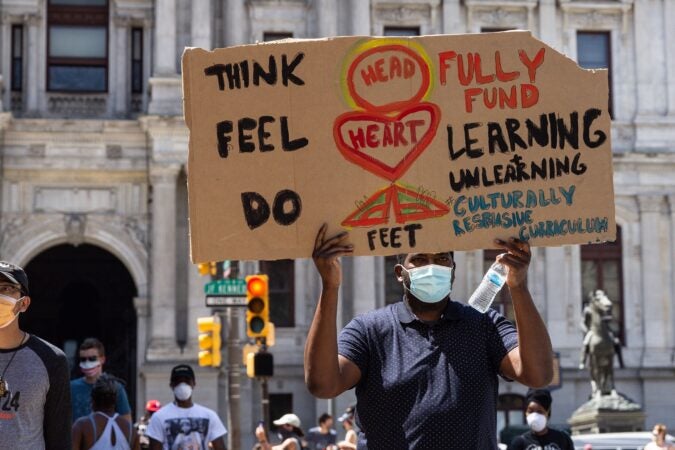

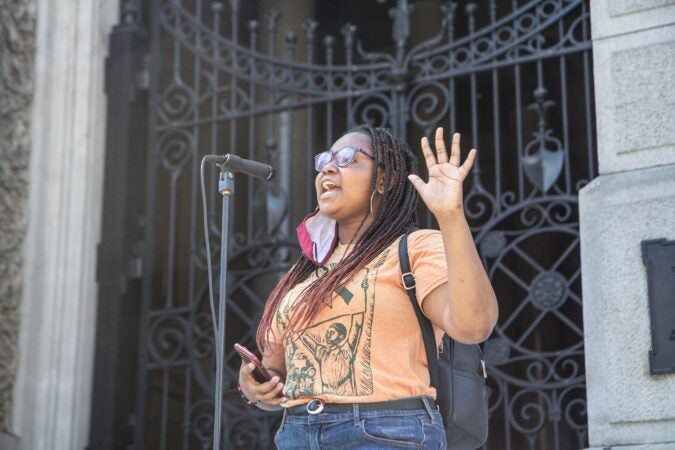
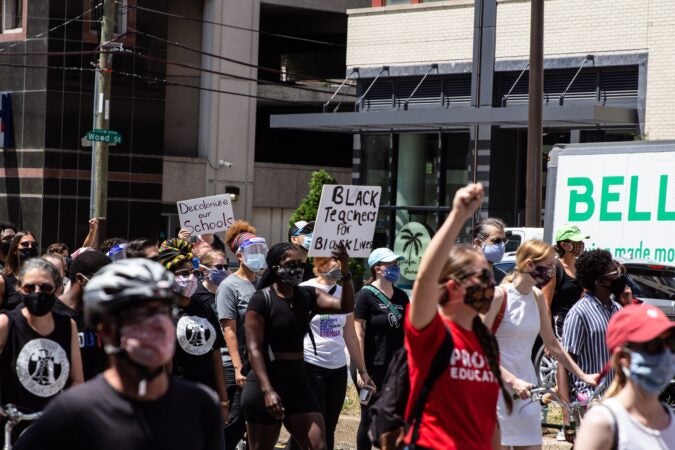
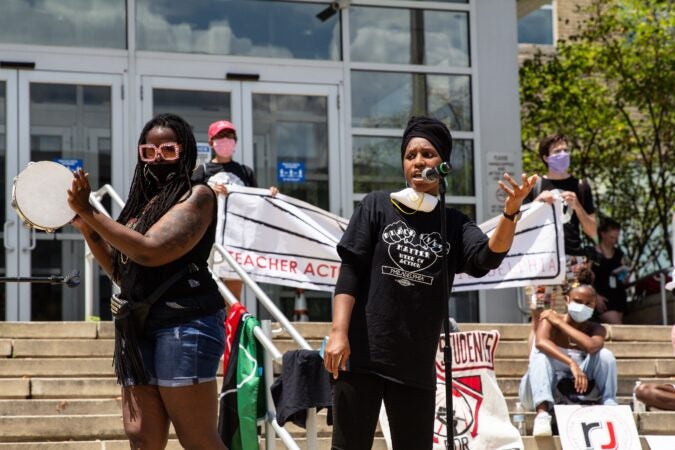
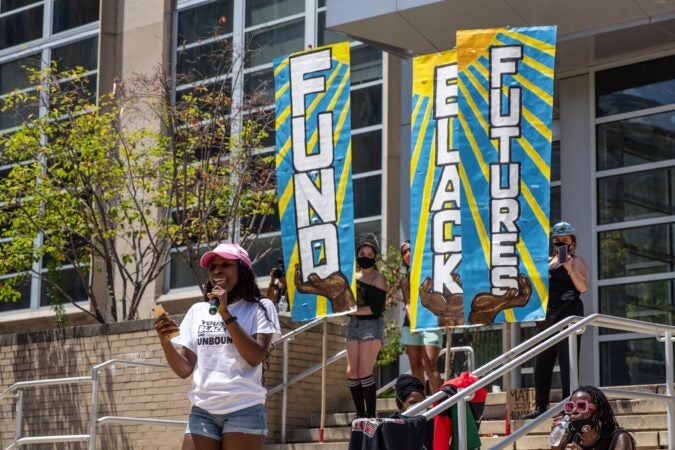


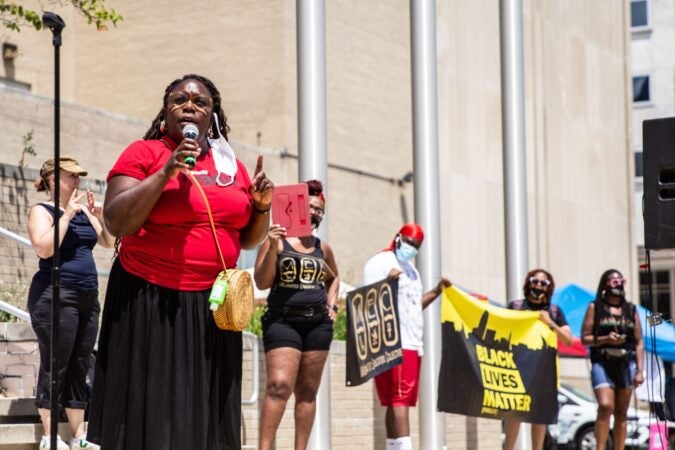
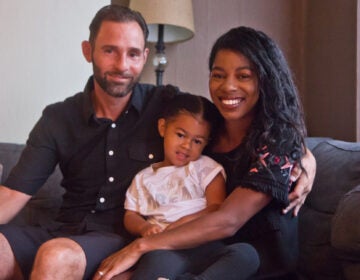
![CoronavirusPandemic_1024x512[1]](https://whyy.org/wp-content/uploads/2020/03/CoronavirusPandemic_1024x5121-300x150.jpg)
